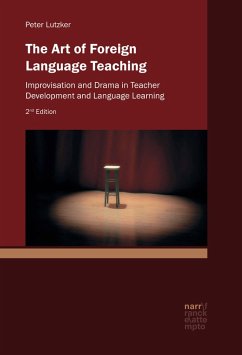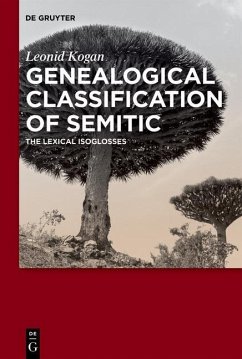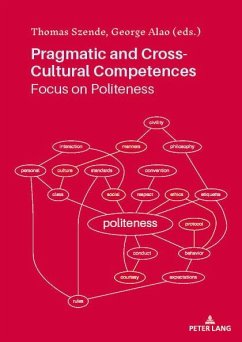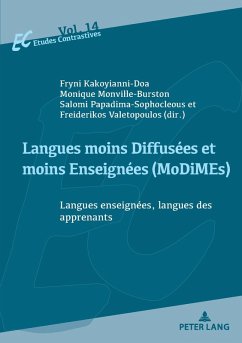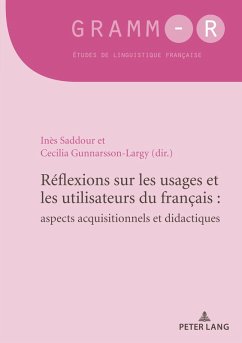
American Learners of Arabic as a Foreign Language (eBook, ePUB)
The Speech Act of Refusal in Egyptian Arabic
Versandkostenfrei!
Sofort per Download lieferbar
Statt: 113,20 €**
89,95 €
inkl. MwSt.
**Preis der gedruckten Ausgabe (Gebundenes Buch)
Alle Infos zum eBook verschenkenWeitere Ausgaben:

PAYBACK Punkte
45 °P sammeln!
The book investigates how American learners of Arabic realize the speech act of refusal in Egyptian Arabic in different speech situations, varying by setting, topic, social distance, and interlocutor status. Two groups of learners, one at the intermediate level and the other at the advanced level of Arabic proficiency, and two baseline groups of native speakers of Egyptian Arabic and native speakers of American English participated in the study.Data were collected using the role-play method, which allowed for the elicitation and analysis of refusals at the discourse level. This type of analysi...
The book investigates how American learners of Arabic realize the speech act of refusal in Egyptian Arabic in different speech situations, varying by setting, topic, social distance, and interlocutor status. Two groups of learners, one at the intermediate level and the other at the advanced level of Arabic proficiency, and two baseline groups of native speakers of Egyptian Arabic and native speakers of American English participated in the study.
Data were collected using the role-play method, which allowed for the elicitation and analysis of refusals at the discourse level. This type of analysis, which helps us reach a better understanding of the distribution and recycling of refusal strategies over a number of turns to achieve communicative goals, is rarely done in speech act research in general and in Arabic speech act research in particular. This study provides evidence of negative pragmatic transfer from L1 among American learners of Arabic. It also provides evidence that pragmatic transfer occurred more frequently among the advanced learners. The advanced learners, however, exhibited an overall higher level of pragmatic competence than their intermediate counterparts. This book is an excellent resource for instructors of Arabic as a foreign language as well as Arabic textbook writers and curriculum designers.
Data were collected using the role-play method, which allowed for the elicitation and analysis of refusals at the discourse level. This type of analysis, which helps us reach a better understanding of the distribution and recycling of refusal strategies over a number of turns to achieve communicative goals, is rarely done in speech act research in general and in Arabic speech act research in particular. This study provides evidence of negative pragmatic transfer from L1 among American learners of Arabic. It also provides evidence that pragmatic transfer occurred more frequently among the advanced learners. The advanced learners, however, exhibited an overall higher level of pragmatic competence than their intermediate counterparts. This book is an excellent resource for instructors of Arabic as a foreign language as well as Arabic textbook writers and curriculum designers.
Dieser Download kann aus rechtlichen Gründen nur mit Rechnungsadresse in A, D ausgeliefert werden.





